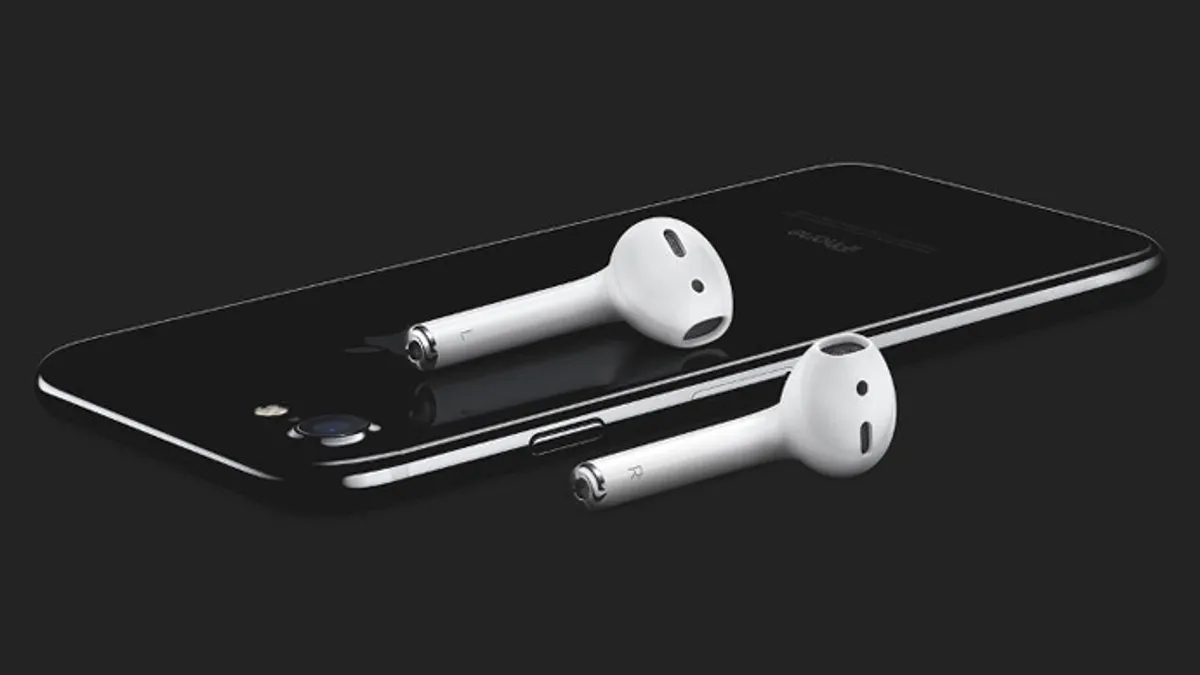Dive Brief:
- Apple says its newly announced iPhone 7 continues the company's move toward more sustainable products, but some environmental groups are questioning how much e-waste it will actually generate, as reported by edie.
- The phone's waterproof quality has the biggest potential for reducing e-waste by prolonging its lifespan. Apple also touted the fact that the aluminum case is recyclable, the technology is more energy-efficient and the device is free of mercury, arsenic, brominated flame retardants or PVC.
- The lack of an audio jack has drawn the greatest scrutiny regarding e-waste reduction. While a cable attachment will support standard audio plugs, some are concerned that customers will throw out their old earphones in favor of the new wireless AirPod model.
Dive Insight:
Apple has a long list of environmental credentials including a trade-in program, a 29-armed recycling robot and a new renewable energy division. Yet their continuous cycle of upgrades has led to large amounts of waste over the years as cable attachments change and older models become less desirable to consumers. Headphones are seen as the latest casualties of this consumption cycle.
"Each iPhone 6 comes with ear plugs which contain 1.5 meters of wiring. For just this phone model alone, that’s enough wire to wrap around the earth over seven times. That's an awful lot of electronic equipment that will be become obsolete over a short timescale," said James Rubin, chief executive of London-based firm Enviro Waste, as reported by edie. "Manufacturers should work together to ensure designs enable cross-device compatibility for accessories and that they are putting the environment over excessive profits."
The new AirPods could also present their own challenges. Apple has yet to announce whether the $160 earphones will be available in singles if people lose one.
While iPhones and similar devices contain valuable resources inside, many aren't properly disposed of and can be challenging to take apart in a cost-effective way. A recent survey conducted by Greenpeace East Asia found that nearly half of respondents think manufacturers should be more responsible for making their phones recyclable. Until consumers decide these environmental factors are more important than the allure of new technology, it's unlikely the pace of new releases will change any time soon.










